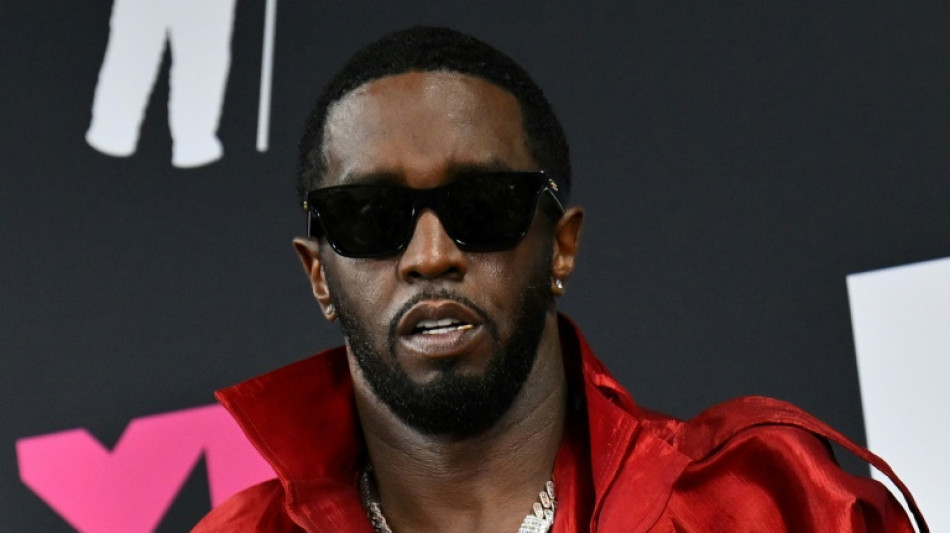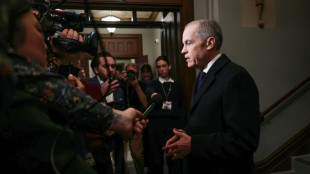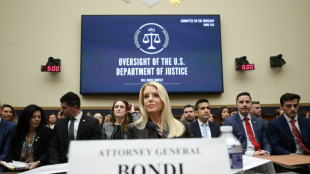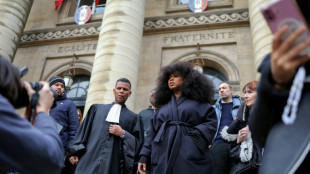

'This is about money:' Combs defense slams charges in closing arguments
Sean "Diddy" Combs's lawyer told jurors Friday in closing arguments that the music mogul's racketeering and sex trafficking trial was all about his accusers trying to score a big payday.
Defense attorney Marc Agnifilo scofffed at the picture painted by prosecutors of the 55-year-old former rapper as a violent, domineering man who used fear to force women into demeaning sex parties.
The relationships between the "self-made, successful Black entrepreneur" and his accusers were "complicated" but amounted to "love stories," rather than the result of a "climate of fear," he said.
"This isn't about justice. This isn't about a crime. This is about money," Agnifilo said.
On Thursday, US attorney Christy Slavik had methodically walked the jury through the charges, summarizing thousands of phone, financial, travel and audiovisual records along with nearly seven weeks of testimony.
Slavik said Combs had "counted on silence and shame to keep his crimes hidden."
"Up until today, the defendant was able to get away with these crimes because of his money, his power, his influence. That stops now," she said.
In explaining the most serious charge of racketeering, the prosecution said Combs led a criminal enteprise of "loyal lieutanants" and "foot soldiers" who "existed to serve his needs."
Central to their case is the claim that senior employees -- including his chief-of-staff and security guards, none of whom testified -- were aware of his actions and actively enabled them.
- Consent or coercion? -
As in their opening statements, Combs's defense conceded that some relationships may have involved domestic violence but insisted they did not amount to sex trafficking.
The prosecution showed examples they say are "crystal clear" evidence of trafficking that included coercion into drug-addled sex with paid escorts under threat of reputational, physical or financial harm.
The defense countered that the women were consenting adults making their own choices.
Both women at the center of the trafficking charges -- singer Casandra "Cassie" Ventura and a woman testifying under the pseudonym Jane -- were in long-term relationships with Combs. The defense argued the sex was consensual, if unorthodox.
"Cassie is nobody's fool," said Agnifilo. "She's sitting somewhere in the world with $30 million if you had to pick a winner in this whole thing, it would be Cassie."
"She was always free to leave. She chose to stay because she was in love with him and he was in love with her."
Calling Ventura "beatiful" and "sexy," he added: "She's a woman who actually likes sex. Good for her."
He questioned her testimony about being coerced into sex with male escorts, adding "This was a lifestyle. You want to call it swingers. You want to call it threesomes... that's all it is."
Addressing the now-infamous video of Combs beating Ventura in a hotel hallway, Agnifilo acknowledged it was "terrible" and "very much domestic violence," but said, "The video is not sex trafficking."
Jurors were shown many phone records that included messages of affection and desire from both women -- but prosecutor Slavik said taking those words literally, and in isolation, doesn't paint the whole picture.
Throughout her arguments she referenced testimony from a forensic psychologist who explained to jurors how victims become ensnared by their abusers.
And in one powerful moment she asked jurors to put themselves in the shoes of Ventura, who testified of harrowing physical abuse for years under Combs.
"Imagine the terror of never knowing when the next hit might come," Slavik said. "Now imagine trying to say no to that person."
Government witnesses also included former assistants and other employees, as well as escorts, friends and family of Ventura, and a hotel security guard who said he was bribed with $100,000 in a paper bag.
The defense opted against calling witnesses, including Combs himself, a strategy that's not uncommon in criminal trials.
Once closing arguments conclude, judge Arun Subramanian will instruct jurors on how they are to apply the law to the evidence during their deliberations.
A.Schuster--VZ



